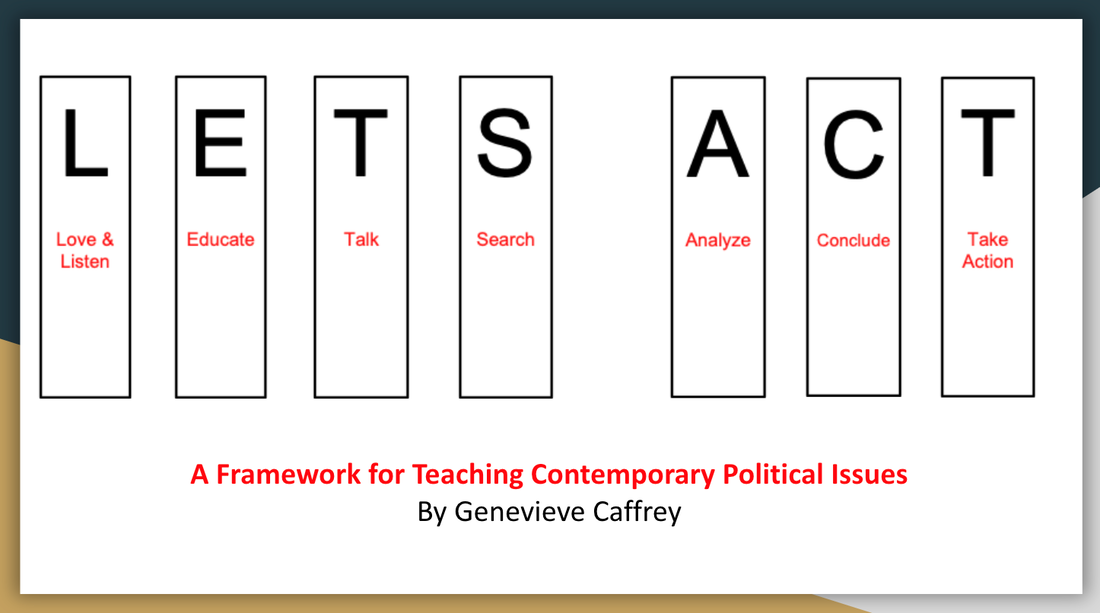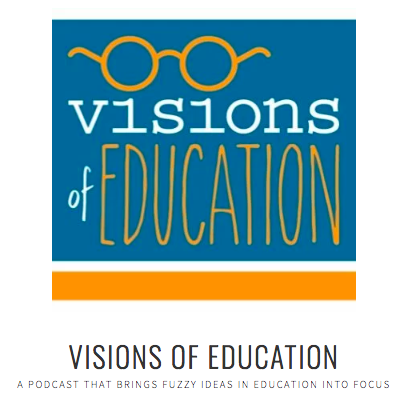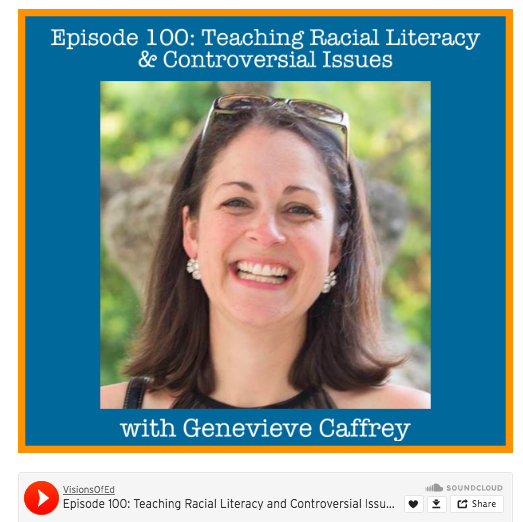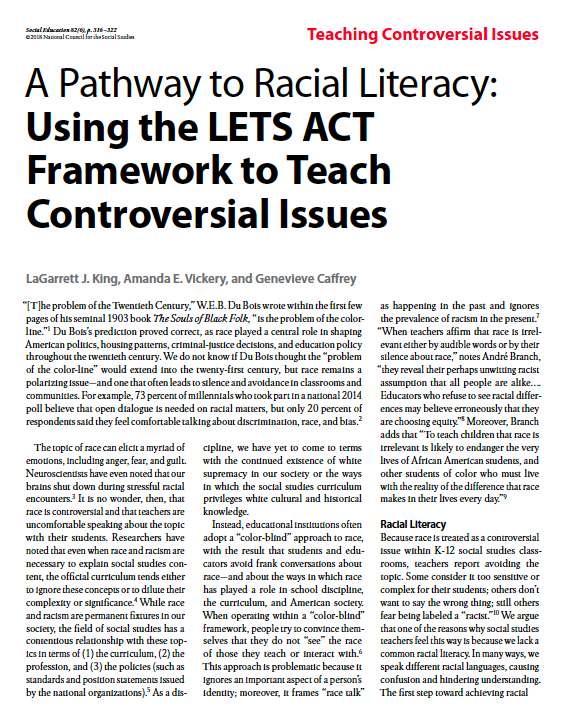Check out an interview about my LETS ACT Framework on the Visions of Education Podcast below!
"A Pathway to Building Racial Literacy: Using the LETS ACT Framework to Teach Controversial Issues"
|
A PowerPoint Presentation walking workshop participants through each step of the LETS ACT Framework
|
|
| ||||
Special note to teachers: The importance of relationship building
The importance of the "Love" part of the "L" of the LETS ACT Framework:
Before jumping into exploring controversial issues with children, it is essential to emphasize the importance of relationship building before broaching any Contemporary Political Issue (CPI). The extent to which young children experience authentic relationships and a sense of belonging with their teachers and peers play profound roles in their decisions about if and how to engage in social spaces (Hauver, 2019; Ladson Billings, 1994; Ron Dow, 2005; Tatum, 2007). At the beginning of the year, teachers should go beyond learning about students’ general interests and strive to understand the historical, institutional, and socio-political contexts that shape students’ experiences and knowledges.
One way to do this is to schedule home visits, which allow teachers to build family relationships and reflect upon how different cultural ways of being and knowing can be valued as a strength and built upon for learning experiences (Compton-Lilly, Rogers & Lewis, 2012; Valdez, 1996). When children have trusting teachers who intentionally value the intersectionality of their identities, voices, and ways of being, students are more likely to feel humanized and empowered to take the risks necessary to engage with civic issues (Hauver, 2019).
Before jumping into exploring controversial issues with children, it is essential to emphasize the importance of relationship building before broaching any Contemporary Political Issue (CPI). The extent to which young children experience authentic relationships and a sense of belonging with their teachers and peers play profound roles in their decisions about if and how to engage in social spaces (Hauver, 2019; Ladson Billings, 1994; Ron Dow, 2005; Tatum, 2007). At the beginning of the year, teachers should go beyond learning about students’ general interests and strive to understand the historical, institutional, and socio-political contexts that shape students’ experiences and knowledges.
One way to do this is to schedule home visits, which allow teachers to build family relationships and reflect upon how different cultural ways of being and knowing can be valued as a strength and built upon for learning experiences (Compton-Lilly, Rogers & Lewis, 2012; Valdez, 1996). When children have trusting teachers who intentionally value the intersectionality of their identities, voices, and ways of being, students are more likely to feel humanized and empowered to take the risks necessary to engage with civic issues (Hauver, 2019).




